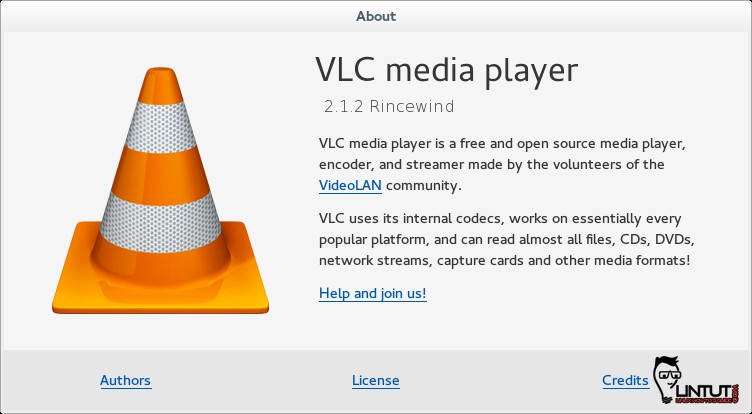VLC is a powerful versatile media player that incorporates support for almost all existent video formats under a single interface, allowing the user to enjoy movies, TV shows, 1080p clips, as well as permitting the adjustment of fonts, 1-click away selection of subtitle types, enabling effects, etc.
VLC 2.1.2 highlight
- With the capabilities of “RinceWind”, 2.1.2 allows experimental decoding of HEVC and Webm/VP9 (depending on the platform).
- 2.1.2 fixes numerous bugs, notably numerous regressions introduced in “RinceWind”.
- Important fixes involve Audio devices management and SPDIF on Windows and Mac OS X.
- 2.1.2 also improves the Windows installer and updates most translations.
- See changelog for more details.
Install VLC v2.1.2 oi CentOS 6.4/6.5 and Fedora 19/20
VLC 2.1.2 already landed in RPM Fusion. First add RPM Fusion repository:
#su -c 'yum localinstall --nogpgcheck http://download1.rpmfusion.org/free/fedora/rpmfusion-free-release-$(rpm -E %fedora).noarch.rpm http://download1.rpmfusion.org/nonfree/fedora/rpmfusion-nonfree-release-$(rpm -E %fedora).noarch.rpm'
Installing VLC 2.1.2 in CentOS 6.4/6.5 and Fedora 19/20 is as easily as typing in a terminal:
# su -c 'yum install vlc'
[ads]

Install VLC 2.1.2 in Ubuntu 13.04/13.10 and Linux Mint 15/16
The VLC PPA still contains VLC 2.0.8 for Ubuntu 13.04/13.10 and Linux Mint 15/16. So we can can either build this release from source code or install with another PPA.
To get started open termina and run commands below one by one:
# sudo add-apt-repository -y ppa:anton50489/test # sudo apt-get update # sudo apt-get install vlc
now I have v.2.1.2 and another 417 upgrades to do ..
removing this ppa will not help
I have to delete a lot of other ppa’s introduced by anton ppa
nice